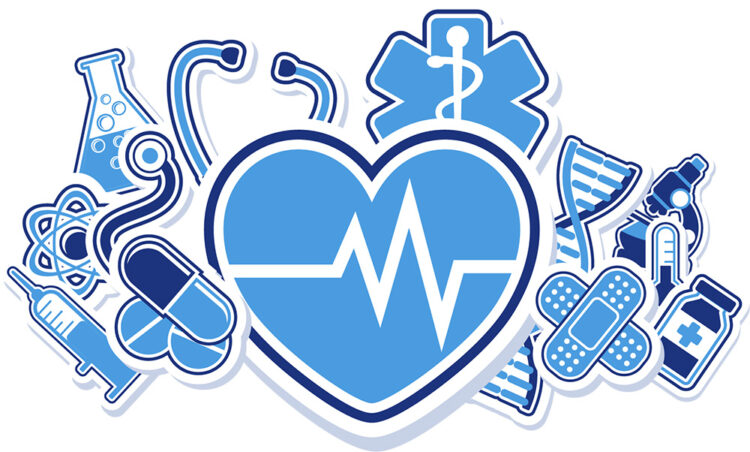Revolutionizing Healthcare with Point of Care Login CNA

In an era marked by technological advancement, the healthcare industry is undergoing a transformative shift. One of the most significant changes is the integration of Point-of-Care (POC) solutions, designed to streamline various healthcare processes and enhance patient outcomes. Central to this revolution are Clinical Nursing Assistants (CNAs), whose pivotal role in patient care is being augmented by POC login systems. This article explores the intersection of POC and CNAs, highlighting their collective impact on healthcare delivery.
The Essence of Point-of-Care Login
Point-of-Care login systems encompass the utilization of technology to grant healthcare professionals, including CNAs, immediate and secure access to patient information at the bedside. These systems enable seamless integration of electronic health records (EHRs), treatment plans, medication administration records, and other critical data, empowering CNAs to make well-informed decisions in real-time. POC login ensures accuracy, reduces documentation errors, and facilitates interdisciplinary collaboration by offering a unified platform for communication among healthcare providers.
Empowering Clinical Nursing Assistants
CNAs play a crucial role in the day-to-day operations of healthcare facilities. They are responsible for direct patient care, including bathing, feeding, vital sign monitoring, and mobility assistance. With the integration of POC login systems, CNAs gain immediate access to patient records, enabling them to provide personalized care tailored to each patient’s unique needs. This real-time access enhances efficiency, reduces redundant tasks, and minimizes the risk of errors, ultimately contributing to higher-quality care.
Benefits of Point-of-Care Login CNAs
- Enhanced Efficiency: Traditional paper-based record-keeping systems are time-consuming and prone to errors. POC login systems expedite data retrieval, allowing CNAs to focus more on patient care and less on administrative tasks. This efficiency translates to increased patient satisfaction and improved overall operational effectiveness.
- Accurate Documentation: Mistakes in healthcare documentation can have severe consequences. POC login systems ensure accurate and up-to-date recording of patient information, medications, treatments, and interventions. This accuracy is vital for maintaining patient safety and complying with regulatory standards.
- Real-time Decision-making: CNAs often need to make swift decisions regarding patient care. With POC login, they have immediate access to relevant information, enabling informed decisions that are aligned with the patient’s condition and treatment plan.
- Interdisciplinary Collaboration: Effective healthcare relies on collaboration among different healthcare providers. POC login facilitates seamless communication between CNAs, nurses, doctors, therapists, and other team members, ensuring that everyone is on the same page regarding patient care.
- Reduced Workload: CNAs juggle various tasks throughout their shifts. POC login systems simplify their workload by consolidating information in one place. This allows CNAs to spend more time with patients and less time searching for information.
- Improved Patient Engagement: Patients appreciate when healthcare providers are knowledgeable about their medical history and needs. POC login enables CNAs to engage in meaningful conversations with patients, addressing their concerns and fostering a sense of trust.
Challenges and Considerations
While the integration of POC login systems in the role of CNAs brings forth numerous benefits, challenges must also be acknowledged. One significant challenge is ensuring the security and privacy of patient information. Robust cybersecurity measures must be in place to safeguard sensitive data from breaches. Additionally, CNAs need adequate training to effectively navigate and utilize POC systems. Ensuring user-friendly interfaces and comprehensive training programs is essential for successful implementation.
Future Implications
The trajectory of healthcare is undeniably moving toward greater digitalization. As POC login systems continue to evolve, the role of CNAs will become even more indispensable. Predictive analytics, artificial intelligence, and machine learning could be integrated into POC systems, assisting CNAs in identifying potential issues and devising proactive care plans. Furthermore, the data generated by these systems can contribute to evidence-based practice and inform healthcare policies.
Conclusion
Point-of-Care login systems have revolutionized the way healthcare is delivered, with CNAs at the forefront of this transformation. By providing CNAs with real-time access to patient information, these systems elevate the quality of care, enhance efficiency, and empower healthcare professionals to make informed decisions. While challenges exist, the benefits far outweigh the drawbacks, setting the stage for a future where CNAs, armed with advanced technology, will continue to play a pivotal role in shaping the landscape of healthcare delivery.
FAQs on Point-of-Care Login for Clinical Nursing Assistants (CNAs)
1. What is Point-of-Care (POC) login for CNAs?
Point-of-Care login refers to the integration of technology that allows Clinical Nursing Assistants (CNAs) to access patient information, electronic health records, treatment plans, and other critical data directly at the bedside, enhancing their ability to provide timely and informed patient care.
2. How does Point-of-Care login benefit CNAs?
Point-of-Care login systems empower CNAs by providing real-time access to patient information, streamlining documentation, reducing errors, and enabling efficient collaboration with other healthcare professionals. This enhances the quality of care they deliver.
3. What are the advantages of using Point-of-Care login systems?
Point-of-Care login systems enhance efficiency, accuracy, and collaboration among healthcare providers. CNAs can make well-informed decisions, reduce redundant tasks, and engage in more personalized patient care.
4. How does Point-of-Care login impact patient care?
With immediate access to patient information, CNAs can tailor their care plans to individual patients’ needs, administer medications accurately, and respond promptly to changes in patients’ conditions, ultimately improving patient outcomes.
5. What challenges might be associated with implementing Point-of-Care login for CNAs?
Challenges include ensuring data security and privacy, providing comprehensive training for CNAs to effectively use the systems, and addressing potential resistance to change among healthcare staff.
6. Are Point-of-Care login systems user-friendly for CNAs?
User-friendliness varies among different systems. However, modern Point-of-Care login solutions aim to provide intuitive interfaces that simplify navigation and minimize the learning curve for CNAs.
7. How does Point-of-Care login contribute to interdisciplinary collaboration?
Point-of-Care login systems enable CNAs to communicate seamlessly with nurses, doctors, therapists, and other healthcare team members by sharing real-time patient information, leading to better coordination and holistic patient care.
8. Can Point-of-Care login systems help CNAs with time management?
Absolutely. By reducing administrative tasks like searching for patient information, CNAs can allocate more time to direct patient care, enhancing overall time management and improving patient experiences.
9. How might the future of Point-of-Care login systems evolve?
The future could involve further integration of artificial intelligence, predictive analytics, and machine learning to aid CNAs in identifying potential health issues early and suggesting proactive interventions.
10. Are there any ethical concerns related to Point-of-Care login systems?
Ethical concerns primarily revolve around data privacy and security. It’s crucial to ensure that patient information is protected and used only for medical purposes, adhering to healthcare regulations and standards.
11. What role do CNAs play in patient engagement with Point-of-Care login systems?
CNAs, armed with real-time patient information, can engage in more meaningful conversations with patients about their medical history, treatment plans, and concerns. This fosters patient trust and engagement in their own care.
12. How do Point-of-Care login systems impact healthcare policies and evidence-based practice?
The data generated by these systems can contribute to evidence-based practice by providing insights into patient outcomes and treatment effectiveness. This data can also influence healthcare policies to improve patient care on a broader scale.
13. Are Point-of-Care login systems widely implemented in healthcare facilities?
The adoption of Point-of-Care login systems is increasing steadily, although the extent of implementation varies among healthcare facilities. Larger institutions and technologically advanced healthcare providers are more likely to have these systems in place.
14. Can Point-of-Care login systems be used on mobile devices?
Yes, many Point-of-Care login systems offer mobile applications, allowing CNAs to access patient information and update records using tablets or smartphones, enhancing mobility and accessibility.
15. How can CNAs adapt to using Point-of-Care login systems effectively?
CNAs can adapt by participating in comprehensive training programs offered by their healthcare facilities. They can also embrace a proactive approach to learning and seek assistance from colleagues or IT support when needed.
16. Do Point-of-Care login systems replace traditional communication among healthcare providers?
Point-of-Care login systems complement traditional communication by providing a centralized platform for sharing information. While face-to-face communication remains crucial, these systems enhance efficiency and reduce information gaps.
17. Can Point-of-Care login systems be customized for specific healthcare settings?
Yes, many Point-of-Care login systems can be tailored to the specific needs and workflows of different healthcare settings, ensuring that CNAs and other healthcare professionals can effectively utilize them.
18. How do Point-of-Care login systems impact CNAs’ job satisfaction?
Point-of-Care login systems can lead to increased job satisfaction among CNAs by reducing administrative burdens, enabling more focused patient care, and enhancing their sense of contribution to positive patient outcomes.
19. Are Point-of-Care login systems only beneficial for CNAs working in hospitals?
Point-of-Care login systems are beneficial across various healthcare settings, including hospitals, nursing homes, clinics, and home healthcare. They empower CNAs regardless of the specific context of their work.
20. How can healthcare facilities ensure the security of patient data in Point-of-Care login systems?
Healthcare facilities must implement robust cybersecurity measures, including encryption, user authentication, access controls, and regular security audits, to safeguard patient data from unauthorized access or breaches.






